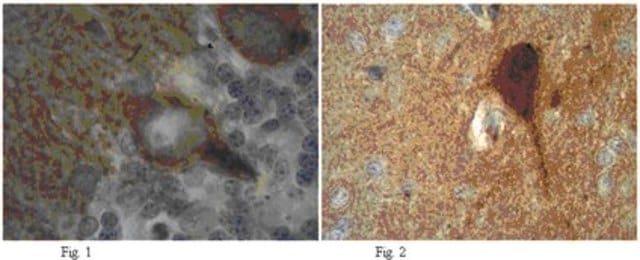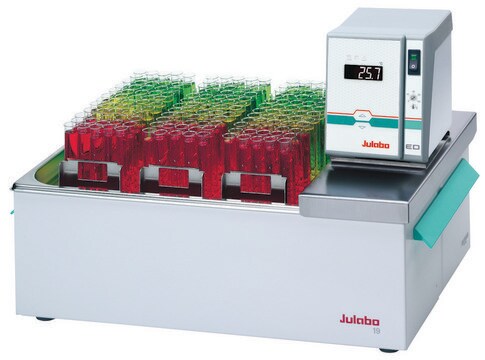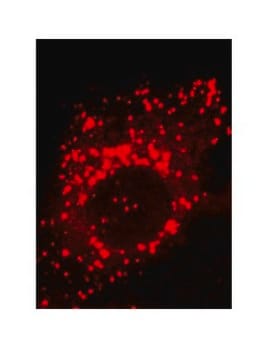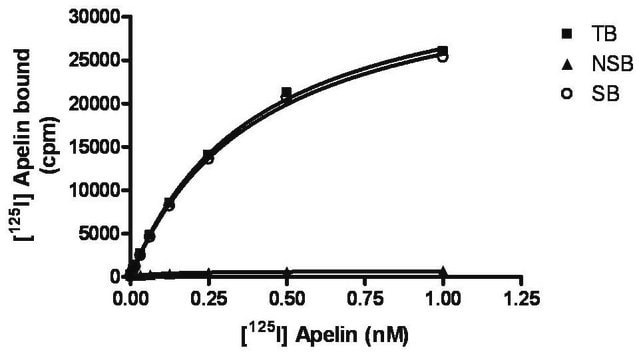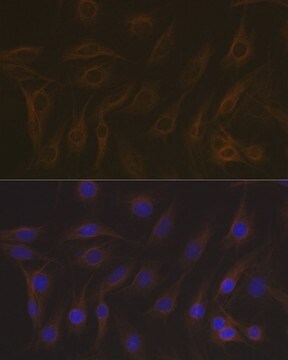MABS1300
Anti-asparagine synthetase Antibody, clone Z5808
clone Z5808, from mouse
Synonim(y):
Asparagine synthetase [glutamine-hydrolyzing], Cell cycle control protein TS11, Glutamine-dependent asparagine synthetase
About This Item
Polecane produkty
pochodzenie biologiczne
mouse
Poziom jakości
forma przeciwciała
purified immunoglobulin
rodzaj przeciwciała
primary antibodies
klon
Z5808, monoclonal
reaktywność gatunkowa
human
metody
ELISA: suitable
flow cytometry: suitable
immunocytochemistry: suitable
immunohistochemistry: suitable (paraffin)
western blot: suitable
izotyp
IgG2aκ
numer dostępu NCBI
numer dostępu UniProt
Warunki transportu
ambient
docelowa modyfikacja potranslacyjna
unmodified
informacje o genach
human ... ASNS(440)
Opis ogólny
Specyficzność
Immunogen
Zastosowanie
Immunocytochemistry Analysis: A representative lot detected asparagine synthetase in Immunocytochemistry applications (Kusano-Arai, O., et. al. (2012). Hybridoma (Larchmt). 31(5):325-32).
Flow Cytometry Analysis: A representative lot detected asparagine synthetase in Flow Cytometry applications (Kusano-Arai, O., et. al. (2012). Hybridoma (Larchmt). 31(5):325-32).
ELISA Analysis: A representative lot detected asparagine synthetase in ELISA applications (Kusano-Arai, O., et. al. (2012). Hybridoma (Larchmt). 31(5):325-32).
Western Blotting Analysis: A representative lot detected asparagine synthetase in Western Blotting applications (Kusano-Arai, O., et. al. (2012). Hybridoma (Larchmt). 31(5):325-32).
Jakość
Immunohistochemistry Analysis: A 1:50 dilution of this antibody detected asparagine synthetase in human breast cancer tissue.
Opis wartości docelowych
Postać fizyczna
Inne uwagi
Not finding the right product?
Try our Narzędzie selektora produktów.
Kod klasy składowania
12 - Non Combustible Liquids
Klasa zagrożenia wodnego (WGK)
WGK 2
Temperatura zapłonu (°F)
Not applicable
Temperatura zapłonu (°C)
Not applicable
Certyfikaty analizy (CoA)
Poszukaj Certyfikaty analizy (CoA), wpisując numer partii/serii produktów. Numery serii i partii można znaleźć na etykiecie produktu po słowach „seria” lub „partia”.
Masz już ten produkt?
Dokumenty związane z niedawno zakupionymi produktami zostały zamieszczone w Bibliotece dokumentów.
Nasz zespół naukowców ma doświadczenie we wszystkich obszarach badań, w tym w naukach przyrodniczych, materiałoznawstwie, syntezie chemicznej, chromatografii, analityce i wielu innych dziedzinach.
Skontaktuj się z zespołem ds. pomocy technicznej

